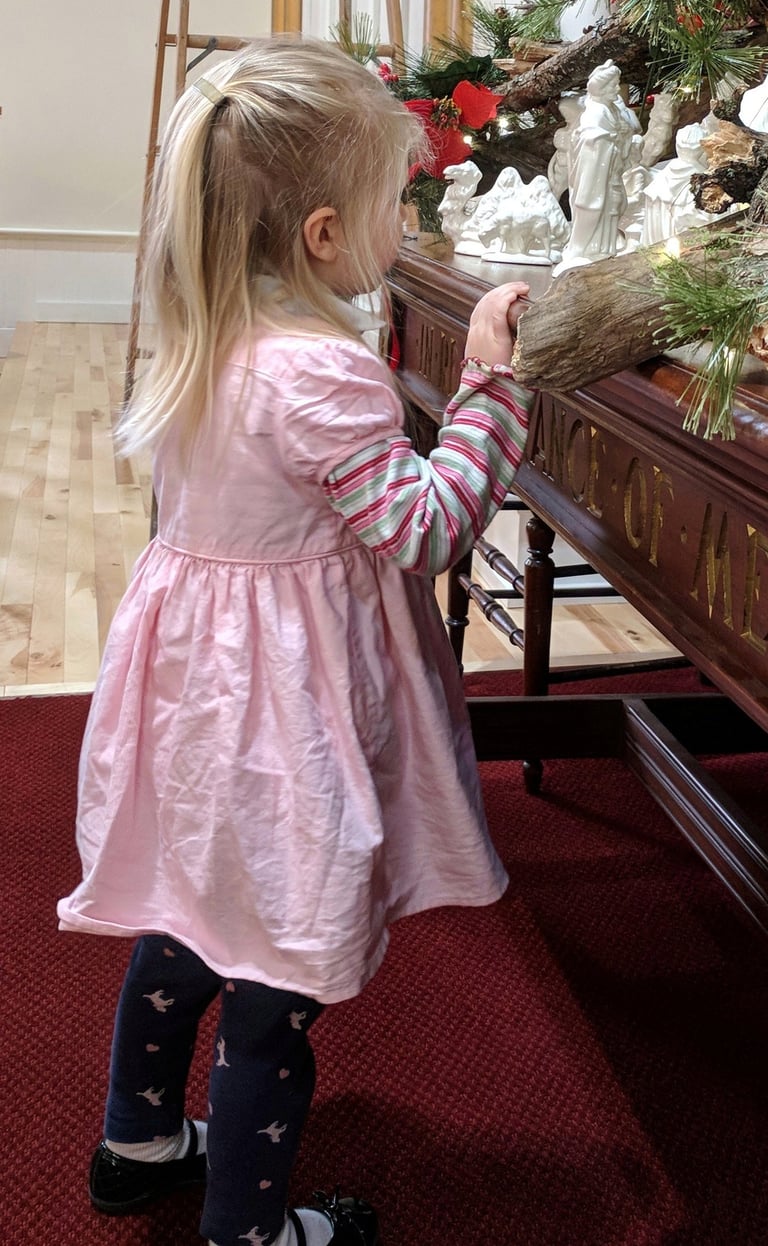There was not a needy person among them, for as many as owned lands or houses sold them and brought the proceeds of what was sold. They laid it at the apostles’ feet, and it was distributed to each as any had need. – Acts 4:34-35
Dear friend,
The colder months of the year are upon us; a time of reflection and curling up with a good book. A time also for our annual pledge of financial support to the church. One of those good books I'm reading is Robin Wall Kimmerer's, The Serviceberry, a book on ecology and economy. In a discussion about fungi living together symbiotically with the Serviceberry, she asks an important question: “What if scarcity is just a cultural construct, a fiction that fences us off from a better way of life?" The reader knows, by this point, that hers is a rhetorical question. Scarcity is a fiction. When we see through this fiction we experience a better, more authentic, more loving, more connected life.
The ancient Greeks gave us the word “oikos,” meaning “household.” From this single word-stem grew three branches of inquiry, originally related but now separated: economics (managing the household), ecology (understanding the household of nature), and ecumenism (understanding the household of humanity). In their separation, each has lost something essential. Economics became fixated on scarcity, ecology became detached from ultimate meaning and purpose, and ecumenical efforts focused on uniformity. But they were never meant to be separate pursuits. Each holds insight the other disciplines need, and together they reveal a vision of life rooted not in scarcity or competition, but in relationship, reciprocity, and abundance. Jesus called this the Kingdom of God.
The earliest Christian community told the story of an alternative to the fiction of scarcity. “All who believed were together and had all things in common; they would sell their possessions and goods and distribute the proceeds to all, as any had need” (Acts 2:44-45). This wasn’t mere charity or obligation, or even bad economics. This story is an expression of what we might call “abundance consciousness,” a recognition that in God’s created order there is more than enough. The miracle wasn’t just the sharing; it was the discovery that sharing itself creates abundance.
Kimmerer asks us to consider the serviceberry. It doesn’t calculate return on investment when offering roots to the fungi. It gives because giving is what it does. And in that giving, it ensures its own flourishing through a full fruiting. This fullness then attracts the birds who spread its seeds and in the process, enrich the soil. The gift keeps on giving. This is “ecological economy.” not competition over scarce resources, but community through abundance.
Stewardship, the word we often use to describe why we have a pledge in-gathering, has much broader connotations beyond care for a budget or a building. Stewardship leans toward care for community and creation. If scarcity is a fiction, then stewardship is not about carefully rationing limited resources, it is rather our joyful participation in the circulation of gifts that characterizes the Kingdom of God. We become partners in the “divine creativity” — that ongoing, collaborative work of making all things new again.
We often talk about the Common Good in our church. Like the Kingdom of God, the Common Good is a product of grace. It is not our creation, but neither could it exist without us. It grows from a rediscovered sense that we are enriched by each other, not drained; that we are gifts to each other, not adversaries; that we are, whether we know it or not, partners in divine creativity. Our job is to know it, to make God’s reality a reality for each of us in each moment, and to respond and act as people enriched by this reality.
This is why our annual pledge campaign is more than a financial necessity. It is a spiritual practice that directly challenges the mythology of scarcity and the violence it engenders and highlights instead the grace of God. When we pledge generously to support both our internal needs (our building, our staff) and our mission (care of ourselves and our communities), we’re not just funding a budget. We’re participating in an alternative economy — one based on abundance rather than scarcity, on gift rather than transaction.
What might our church look like if we embraced this vision? What might our world look like if communities everywhere began living as if abundance, not scarcity, were the deepest truth about reality?
As you consider your pledge to the church this year, I invite you to reflect not just on what you can afford to give, but on what it means to participate in God’s economy of abundance. Your generosity isn’t just sustaining a church — it’s helping to heal divisions in our world that have too often been spawned by fears of scarcity.
In the economy of God, giving doesn’t diminish us. It enlarges us. Like the serviceberry, we flourish not despite our giving, but because of it.
Gratefully yours,
Rev. Peter Plagge
(You may make a pledge here and click on the middle line to change it from a one time gift to a periodic donation.)

